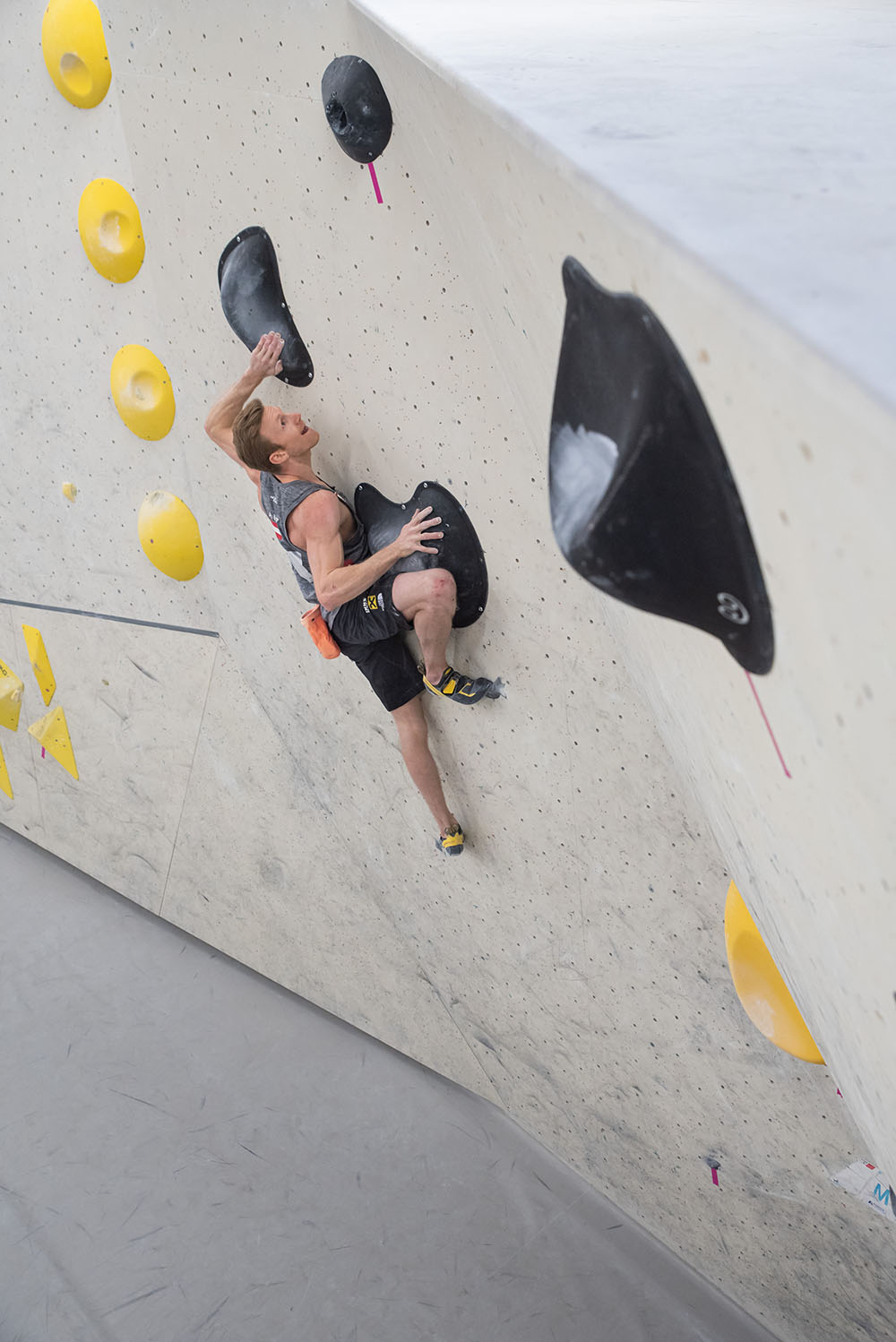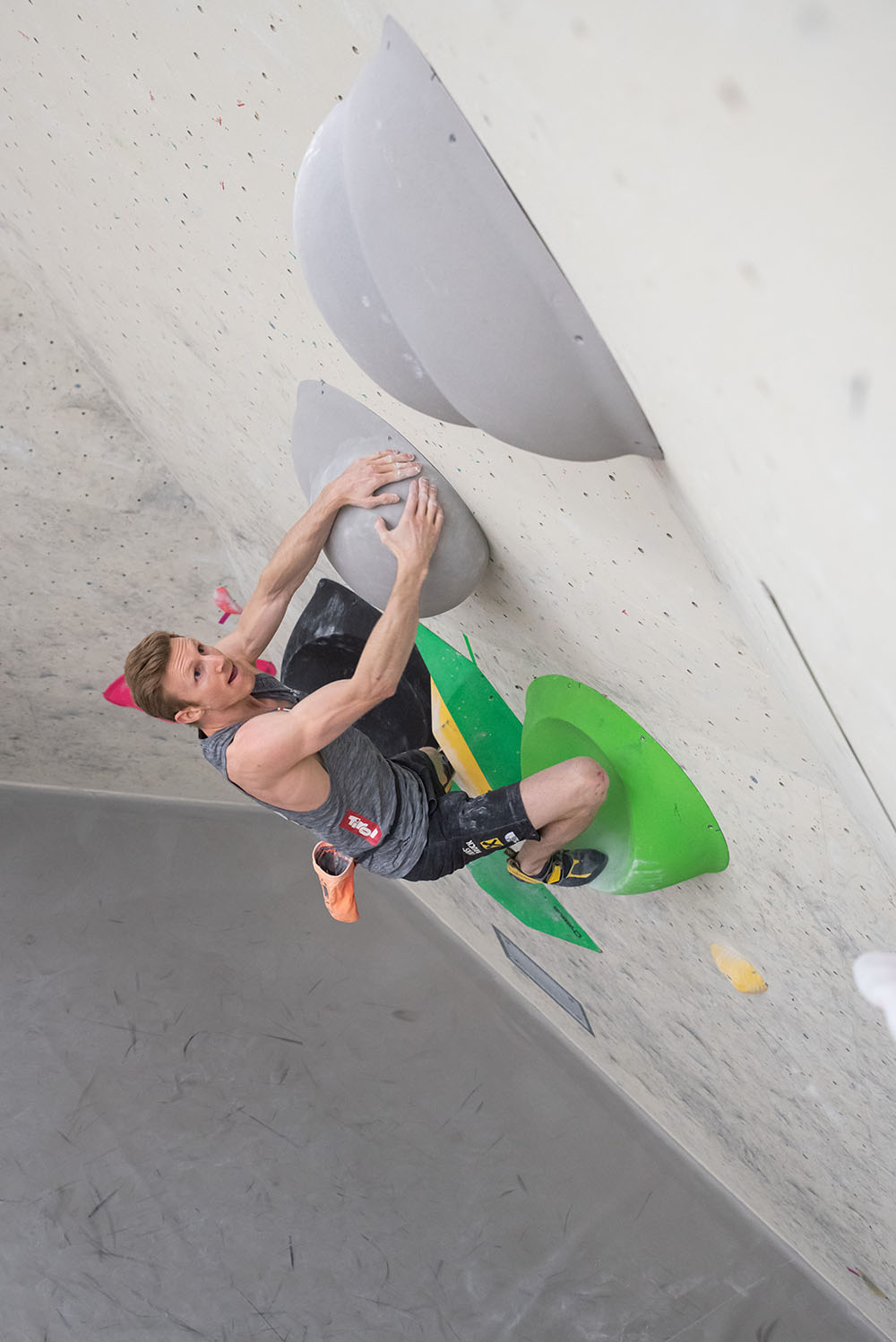DESTINATION REDPOINT

Climbing will be Olympic and I will be there.
It feels almost novel to sit in the team buses with the entire Boulder National Team and travel together to the competition. I’m excited and looking forward to the first Boulder World Cup competition in two years. Incredibly, the last time the international bouldering elite met was in Munich in May 2019.
So, 23 months later I’m on my way to Meiringen, Switzerland. It begins, and the long period of pure training and preparation is over – or rather, receives a welcome change. It’s the first chance to see where one stands among the very best, just four months before the Olympic premiere of our sport.
I’ve also prepared myself for the pressure and nervousness that comes with competition. As a fixed starter at the Olympic Games, the expectations are extremely high, not just for me personally, but also on the part of the coaches; the entire team is watching what I do. This carries me further. I need the pressure and the encouragement from my climbing environment to push me even harder.
A few weeks ago we had a simulated competition during which exactly this need was made clear. For most of the competitors it was also a qualifier for the Boulder World Cup, the best of whom are now sitting next to me on the bus. For the first time ever, we were also accompanied by a film crew over the two days. The resulting video gives everyone a super exclusive and unprecedented insight into what simulation means in this case. The clip went live on my Youtube channel today.
What happens during the simulated competition?
In the simulated competition, an attempt is made to recreate the individual phases of an actual climbing competition with all its mental and physical demands. It selects the fittest athletes for the upcoming competition, as well as recreates the essential feeling of competing. Internationally active route setters set a wide variety of boulder problems according to current World Cup standards – new school bouldering with lots of volumes, including dynamic as well as static elements – and therefore give coaches as well as climbers an overview of the athletes’ training level.


Although I have a fixed ticket for the World Cup, a simulation is an important part of my preparation, and I take it very seriously. I want to prove to myself that I’ve done a good job with my training. Approaching the simulation this way, I go through the same emotions as in the actual competition. This is extremely important to build expertise – the more often I go through these situations, the better I can handle them in the future.
This is just as true for competition results. As seen last weekend at the European Cup in Klagenfurt, my training partner Nicolai Uznik was able to achieve what he had set out to do in the video earlier. Ranking 7th wasn’t a huge disappointment for me personally. I’ve been in elite sport long enough to have lived through similar situations. Typically, with bouldering I always need a few competitions until I’m “up to speed.” I know that I’m in shape, so it doesn’t bother me too much. It’s the next two days that will actually count: we finally have the Boulder World Cup again.
By the way, I won the last World Cup in this discipline in Munich almost two years ago. But that time it wasn’t the start of the season ;)
99 days left till the Olympic Games …
Competition Highlights 2021
16.-17.04 | World Cup in Meiringen (SUI)
22.-26.06. | Home World Cup in Innsbruck (AUT)
03.-06.08. | Olympic Games in Tokyo (JPN)
Photos by KVÖ/Lanzanasto